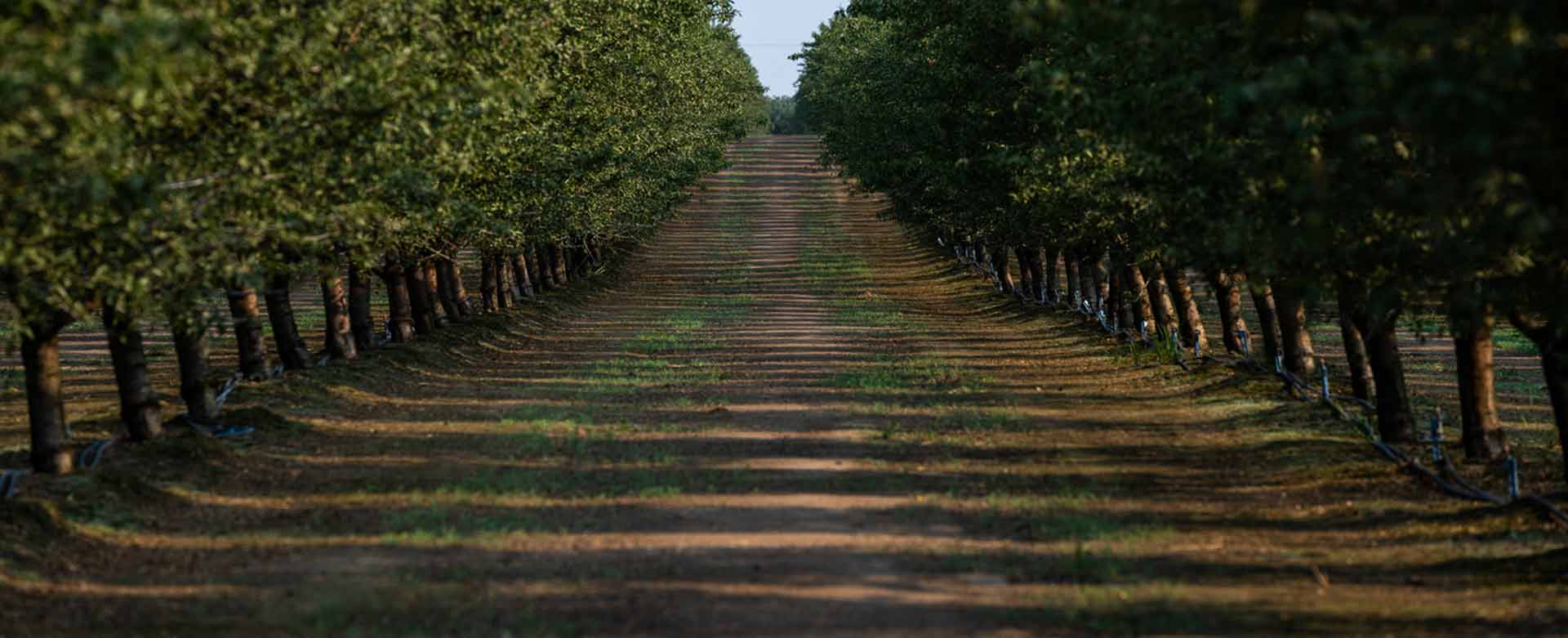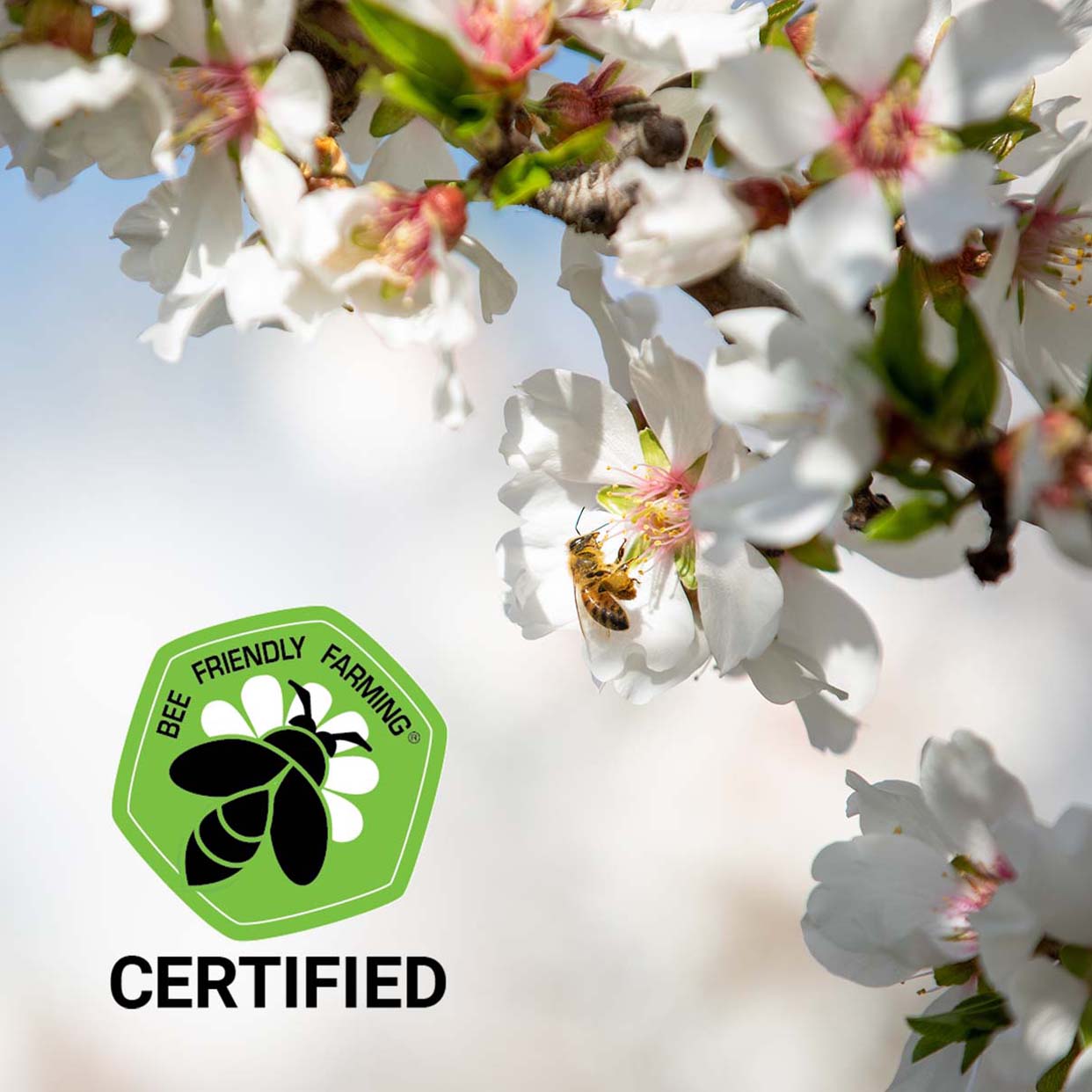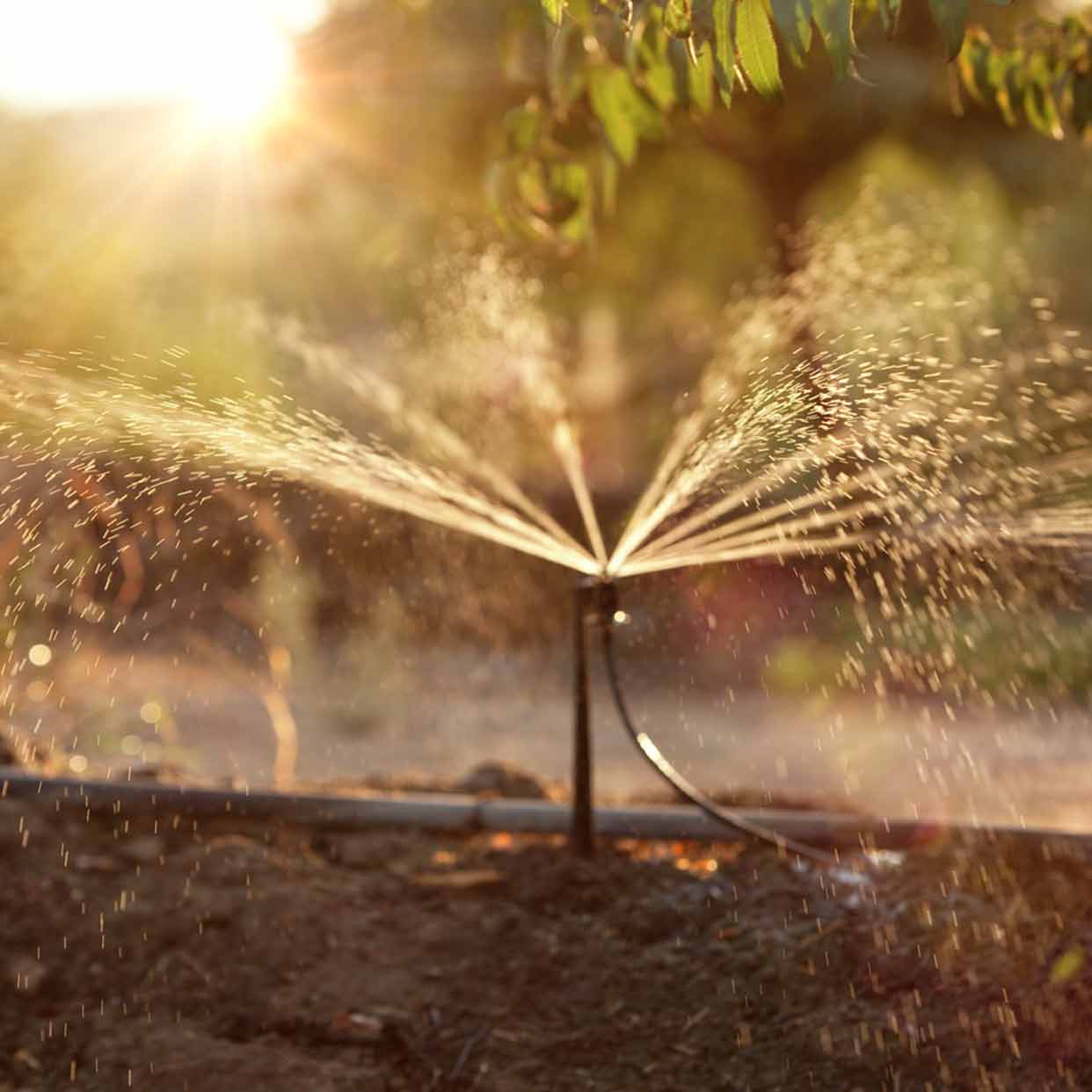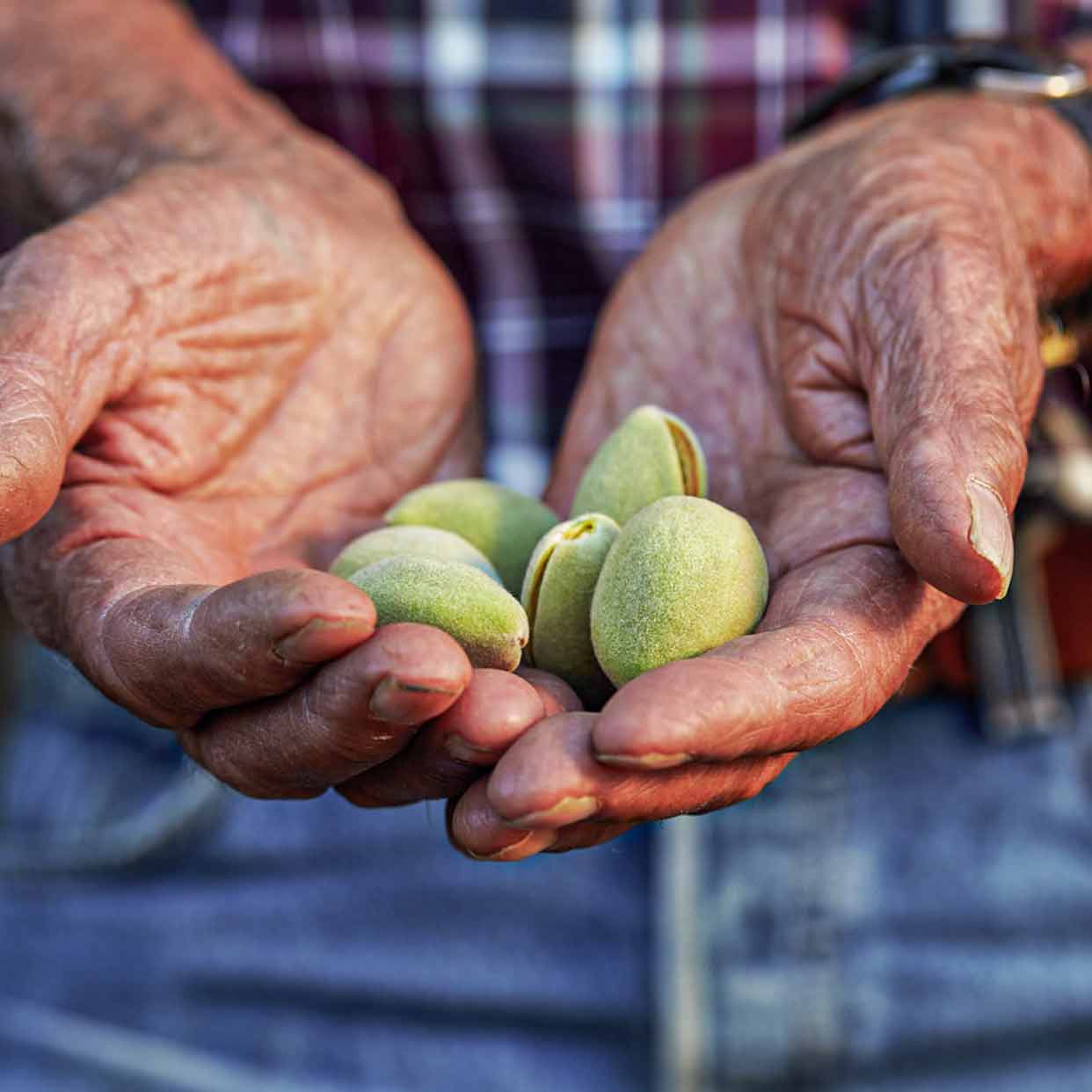Pesticide/Bee Health
Our Integrated Pest Management Program (IPM) deploys passive pest management tactics as our first line of defense. These methods include trapping, mating disruption and orchard sanitation. When we do need to resort to chemical-based tactics we can target only problem areas - no more spraying the whole orchard for a local problem. We apply crop protection materials only during inactive periods for bees and pollinators, and have eliminated the use of chemicals linked to pollinator health decline like chlorpyrifos and neonicotinoids.
Bee Friendly Certified
All 10,000+ acres of our owned and managed almond orchards are Bee Friendly Farming Certified by the Pollinator Partnership. This program validates that our IPM program adheres to best practices for protecting pollinators and requires that our orchard lands provide year-round forage and nesting habitat totaling at least 3% of our farmed acreage. To date we have set aside 867 acres of permanent bee habitat on our managed orchards consisting of native open lands, unmanaged natural landscapes, drainage ditches and water ways and even riparian habitats. We are also planning additional managed habitat spaces like ‘bee gardens’ and flowering hedgerows to enhance forage and nesting options for pollinators. You can visit SelectHarvestUSA.com for more information.




